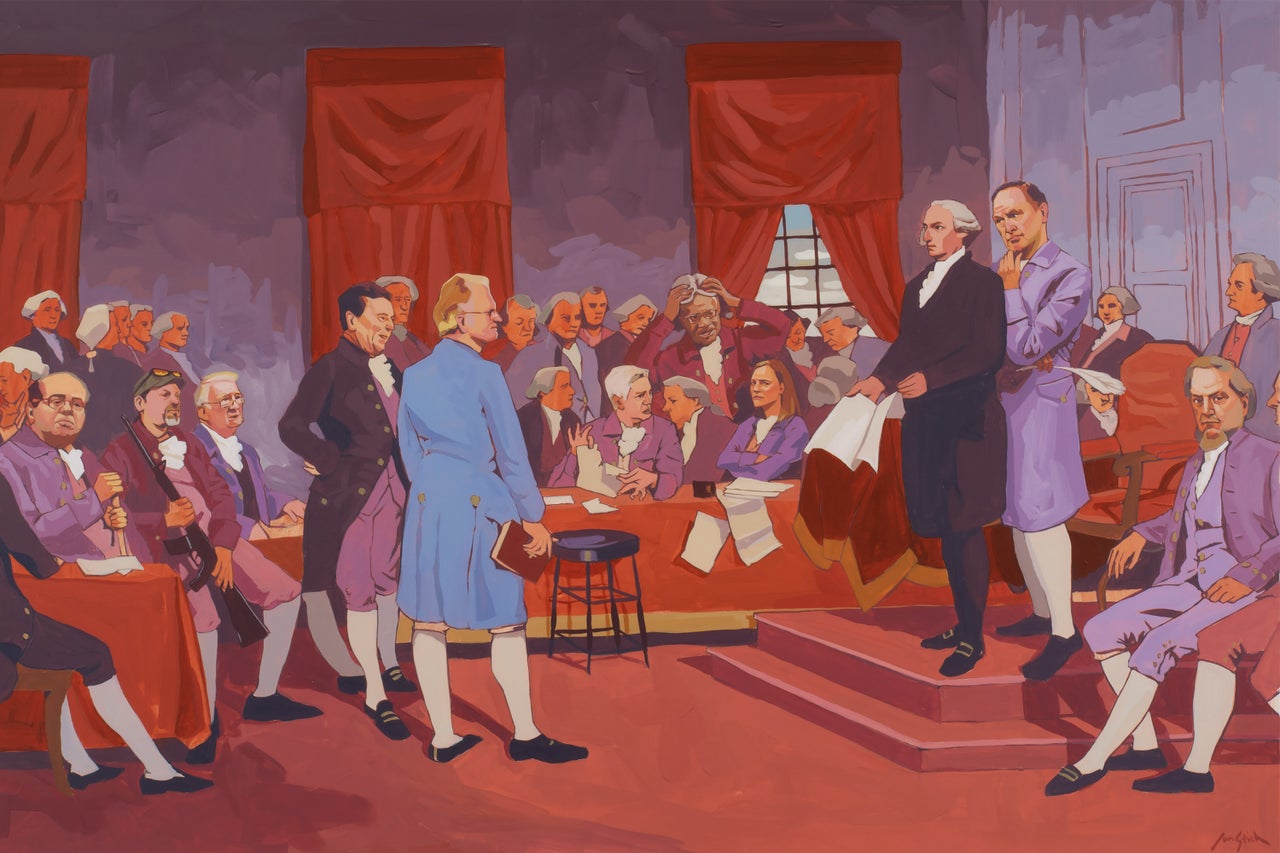A round of assorted items collected on the web the past few days.
Here’s that item about what universities are for, that I couldn’t find the other day.

The Atlantic, Derek Thompson, 8 May 2024: No One Knows What Universities Are For, subtitled “Bureaucratic bloat has siphoned power away from instructors and researchers.”
As the subtitle indicates, this isn’t about what course material is taught; it’s about administrative bloat. It’s an easy target, just as conservatives complain about the “deep state,” but I would be very careful about blanket recommendations for massive staff cuts. Beware philistines destroying everything they do not understand.
\\

Joe.My.God, 9 May 2024: One Million Moms Vs “Sexually Perverse” Boy Scouts
This aggregate site runs stories about this group regularly, based on the group’s press releases that complain about anything that isn’t about strict animalistic reproduction. Basic tribal morality.
\\

Slate, Dahlia Lithwick, 8 May 2024: How Originalism Ate the Law, subtitled “America is captive to a legal theory that dictates our laws on guns, abortion, and so much more. We need to act.”
Similarly: Constitutional originalism seems to be the tool of choice for appealing to whatever the “founders” intended in the language of their time, denying that society has changed or that anything can learned. Thus, as in the abortion case, since abortion wasn’t in the Constitution, any laws made about it must be unconstitutional. Another mechanism for preserving antiquated morality.
\\

NY Times, guest essay by Thomas B. Edsall, 8 May 2024: The Happiness Gap Between Left and Right Isn’t Closing
On the one hand, it’s been widely noted that some nations, especially those in Scandinavia, are “happier” by various measures than is the US; on the other hand, as this piece begins,
Why is it that a substantial body of social science research finds that conservatives are happier than liberals?
A partial answer: Those on the right are less likely to be angered or upset by social and economic inequities, believing that the system rewards those who work hard, that hierarchies are part of the natural order of things and that market outcomes are fundamentally fair.
Those on the left stand in opposition to each of these assessments of the social order, prompting frustration and discontent with the world around them.
The happiness gap has been with us for at least 50 years, and most research seeking to explain it has focused on conservatives. More recently, however, psychologists and other social scientists have begun to dig deeper into the underpinnings of liberal discontent — not only unhappiness but also depression and other measures of dissatisfaction.
But another take, thinking about the various moral polarities, is that conservatives are simply more complacent, secure in their stations in life, while liberals are forever unsatisfied, thinking that something more could and should be done. Liberals are more apt to acknowledge reality; conservatives prefer ideology and self-serving mythologies. This is consistent with the idea that human perceptions and morality have become optimized for survival, not with perceiving reality.
\\
This piece is noted just for the subtitle. Nothing about principles or morals here.

Salon, Amanda Marcotte, 7 May 2024: Kristi Noem doubles down on Puppygate — can MAGA’s endless trolling go any lower?, subtitled “When your sole purpose and only political tactic is to trigger the ‘libs,’ there’s no limit to the depravity”
\\
The Atlantic, Anne Applebaum, 6 May 2024: The New Propaganda War, subtitled “Autocrats in China, Russia, and elsewhere are now making common cause with MAGA Republicans to discredit liberalism and freedom around the world.”
The Steven Pinker book I’m reading has an interesting passage about the various idealistic “revolutions” of recent centuries that have aspired to instill “higher” principles of society and government than the “Tragic” (as Pinker calls it) or base tribal (as I’ve been calling it) morality that has governed most human societies. Most haven’t worked out; in fact they’ve led to authoritarians and despots. Yet, Pinker suggests, American democracy has been perhaps the most successful experiment of any of them. But now — here’s more evidence in this piece — perhaps base morality, resenting the idealistic experiment of American democracy — is re-emerging again.
Alex Henderson at AlternNet has this analysis of The Atlantic piece.
…the world is experiencing a major battle between authoritarians and promoters of liberal democracy — and “electing Trump” is a goal of “autocrats” around the world.
\\

LA Times, Jonah Goldberg, 7 May 2024: Column: What happened to the Republican war on ‘woke’ — and what we should have learned from it
Goldberg is right-leaning, thus the “we” in the subtitle, perhaps. So what is his point? He reviews the history of the word woke, and its predecessor “political correctness,” and how today “Both wokeness and anti-wokeness have lost their transgressive edge. Now they’re both kind of ‘cringe,’ as the kids say.” (This is why, I would say, terms like these change at least once a generation.)
The piece ends with his point.
There’s a lesson here for the right too. For a decade, the populist right has been whining about losing every battle in the culture war to rationalize its embrace of radical and authoritarian politics. But the premise is wrong. The right doesn’t always lose — or win — any more than the left does.
Trump and his supporters insist that America can’t survive without him in the White House. William Barr, who was attorney general under Trump, says his former boss is utterly unfit to be president but that he will still vote for him because a second Biden term would amount to “national suicide” because of wokeness or something. Never mind that wokeness surged under Trump and has been receding under Biden.
Obviously, the right and left still have plenty to complain and worry about. The point is that there’s always plenty to complain and worry about. Tides come and go. And people learn, eventually, from their mistakes.
There’s a mantra: keep things in perspective. The troubles of today are not much different than those of previous generations; or as I said in my Provisional Conclusion #10: There will always be change; no matter how many current problems we solve, there will always be those who are unhappy and demand more change, or resist past change. There will never be a utopia in which everyone is blandly, mindlessly content.
\\
One more from the crackpot fringe.

Joe.My.God, 7 May 2024: Ex-Trump Aide Vows Porn Ban In Trump’s Second Term
He is naïve? Or stupid? Or is this simply another example of conservatives who want to impose their ideology upon everyone? More mundanely, how could this possibly be enforced? Internet! He’s tilting at windmills. Actually, my hunch is that he knows his proposal is absurdly impractical, but he’s appealing to the small-minded tribal moralists who think his idea is a good one.





